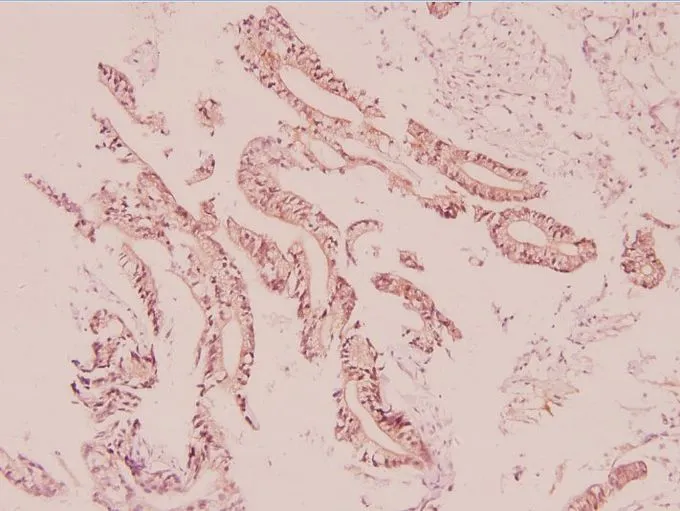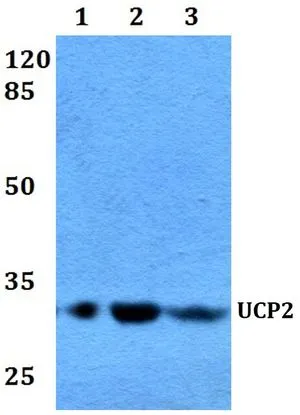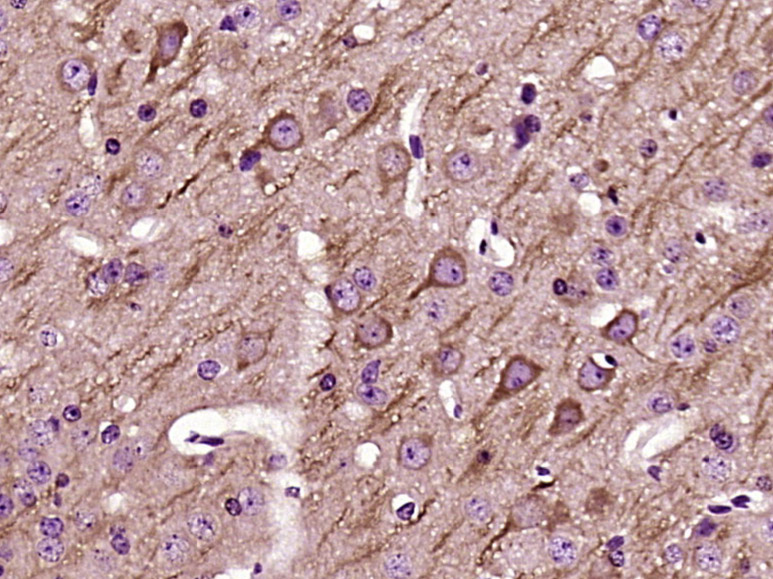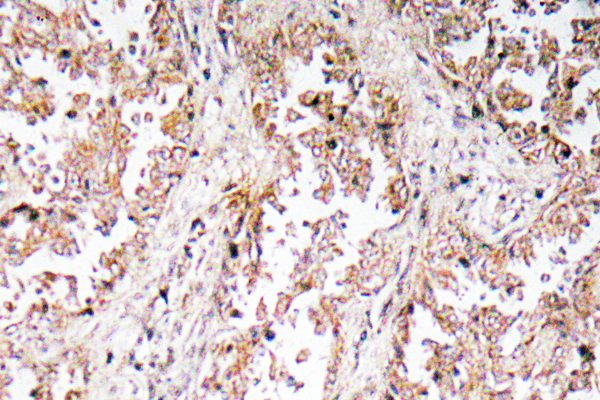
IHC-P analysis of human colorectal cancer carcinoma tissue using GTX66704 UCP2 antibody. Dilution : 1:100
UCP2 antibody
GTX66704
ApplicationsWestern Blot, ImmunoHistoChemistry, ImmunoHistoChemistry Paraffin
Product group Antibodies
TargetUCP2
Overview
- SupplierGeneTex
- Product NameUCP2 antibody
- Delivery Days Customer9
- Application Supplier NoteWB: 1:500-1:1000. IHC-P: 1:50-1:200. *Optimal dilutions/concentrations should be determined by the researcher.Not tested in other applications.
- ApplicationsWestern Blot, ImmunoHistoChemistry, ImmunoHistoChemistry Paraffin
- CertificationResearch Use Only
- ClonalityPolyclonal
- Concentration1 mg/ml
- ConjugateUnconjugated
- Gene ID7351
- Target nameUCP2
- Target descriptionuncoupling protein 2
- Target synonymsBMIQ4, SLC25A8, UCPH, dicarboxylate carrier SLC25A8, mitochondrial uncoupling protein 2, solute carrier family 25 member 8, uncoupling protein 2 (mitochondrial, proton carrier)
- HostRabbit
- IsotypeIgG
- Protein IDP55851
- Protein NameDicarboxylate carrier SLC25A8
- Scientific DescriptionMitochondrial uncoupling proteins (UCP) are members of the larger family of mitochondrial anion carrier proteins (MACP). UCPs separate oxidative phosphorylation from ATP synthesis with energy dissipated as heat, also referred to as the mitochondrial proton leak. UCPs facilitate the transfer of anions from the inner to the outer mitochondrial membrane and the return transfer of protons from the outer to the inner mitochondrial membrane. They also reduce the mitochondrial membrane potential in mammalian cells. Tissue specificity occurs for the different UCPs and the exact methods of how UCPs transfer H+/OH- are not known. UCPs contain the three homologous protein domains of MACPs. This gene is expressed in many tissues, with the greatest expression in skeletal muscle. It is thought to play a role in nonshivering thermogenesis, obesity and diabetes. Chromosomal order is 5-UCP3-UCP2-3. [provided by RefSeq, Jul 2008]
- Storage Instruction-20°C or -80°C,2°C to 8°C
- UNSPSC12352203







